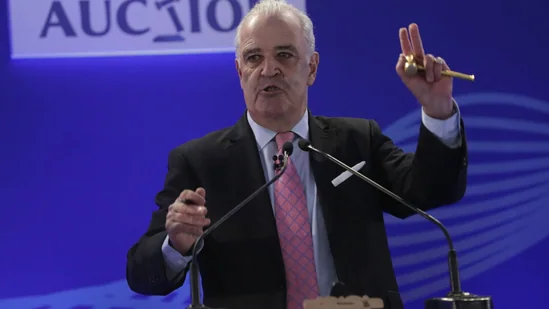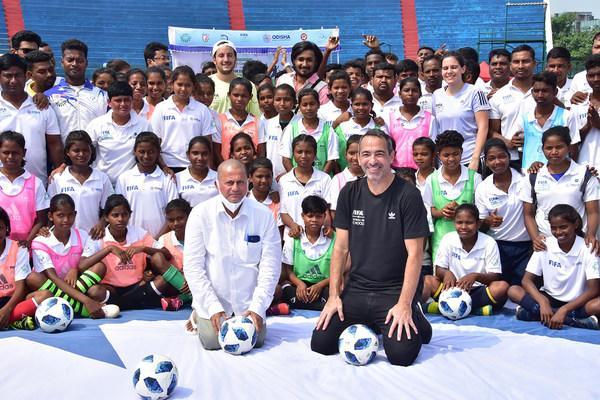IPL 2022 Auction: Hugh Edmeades Collapses, Charu Sharma Appointed New Auctioneer

Bengaluru, Feb 12: Veteran auctioneer Hugh Edmeades collapsed on stage while conducting the first session of the Indian Premier League (IPL) auction in Bengaluru on Saturday. He was found to be “doing fine” after a medical check-up.
The 60-year-old Hugh Edmeades’s collapse midway into proceedings, led to an early lunch at the ongoing event.
“He has been attended to by a doctor. He is doing fine, his blood pressure dropped suddenly and that was the reason for his sudden collapse. We will know more once he has a thorough check-up,” said BCCI.
Edmeades, who has conducted over 2700 auctions across the globe, primarily of cars including an Aston Martin used in a James Bond film, had Sri Lankan leg-spinner Wanindu Hasaranga’s name under the hammer when he fell from his auction pedestal.
He was immediately stretchered off for medical attention and it came to light that he had suffered the fall due to low blood pressure.
Meanwhile, broadcaster Charu Sharma has been appointed as the new auctioneer for the rest of the auction on day one.
“Mr. Hugh Edmeades, the IPL Auctioneer, had an unfortunate fall due to Postural Hypotension during the IPL Auction this afternoon. The medical team attended to him immediately after the incident & he is stable. Mr. Charu Sharma will continue with the Auction proceedings today,” the IPL said in a statement.
At the ongoing auction, stylish India international Shreyas Iyer predictably became the highest paid player among the marquee set with Kolkata Knight Riders clinching him for a whopping Rs. 12.25 crore after an intense bidding war.
India seamer Harshal Patel, who was IPL’s top wicket-taker last year, enjoyed a fantastic auction as Royal Challengers Bangalore retained him for Rs. 10.75 crore.
Some of the veteran India players like Shikhar Dhawan, bought for Rs 8.25 crore by Punjab Kings, and Mohammed Shami, gone for Rs 6.25 crore to new entrants Gujarat Titans, also enjoyed a good pay day.
Even Ravichandran Ashwin had no reason to complain as he earned a Rs 5 crore deal from Rajasthan Royals.
The young turk who raked in the moolah during the opening session was young left-hander Devdutt Padikkal, who got a Rs 7.75 crore (over USD 1 million) deal with Rajasthan Royals.
Among the foreign players, T20 specialists like West Indies all-rounder Jason Holder (bought for Rs 8.75 crore by Lucknow Supergiants), South Africa speedster Kagiso Rabada (bought for Rs 9.25 crore by Pubjab Kings) and hard-hitting Shimron Hetmyer (bought for Rs 8.5 crore by Rajasthan Royals) all breached the million dollar mark among overseas cricketers.






